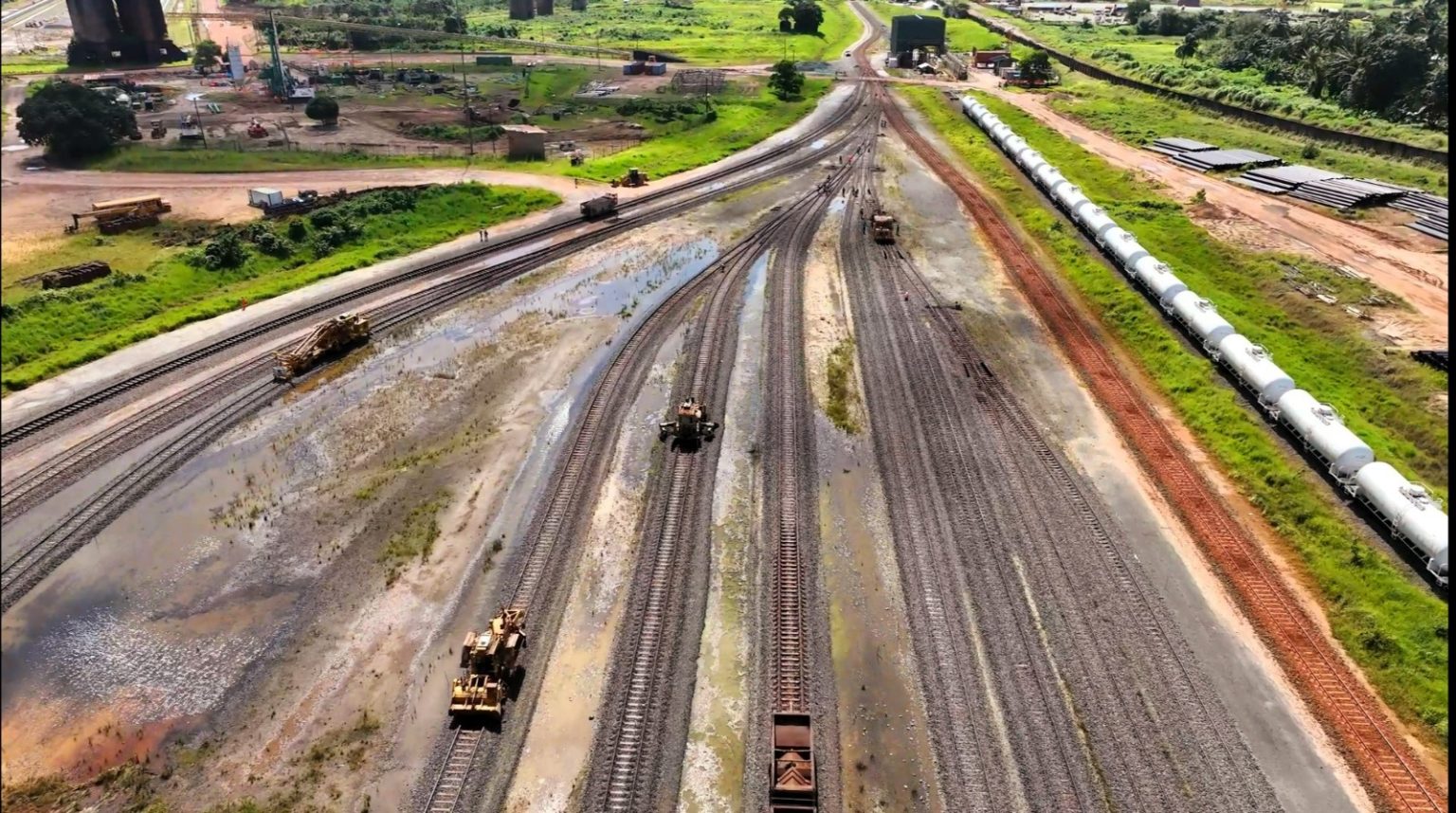The Liberia National Police have apprehended several individuals suspected of vandalizing and obstructing the railway operations of ArcelorMittal Liberia (AML) between June 10th and 12th, 2025. This disruption, which involved placing debris and other obstacles on the tracks, lighting fires, and removing steel sleepers between Kilometers Six and Ten, effectively halted the transportation of iron ore from Nimba County to the Port of Buchanan in Grand Bassa County. The individuals involved are believed to be former employees of WBHO, a contractor company independent of AML, and claim to have unresolved issues with their former employer. This incident resulted in significant financial losses for AML and underscores a concerning trend of illegal actions against the company.
The railway line, a vital component of Liberia’s infrastructure, plays a crucial role in transporting iron ore, the country’s primary export commodity, from the mines in Yekepa to the port of Buchanan. This disruption not only impacts AML’s operations and revenue generation but also has broader economic ramifications for Liberia, affecting state revenue and the overall mining and trade sectors. The timing of this incident is particularly noteworthy, occurring just days after AML unveiled a significant investment in the form of a $1.8 billion Concentrator Plant in Nimba County, highlighting the potential negative impact of such disruptions on investor confidence and economic development.
The individuals arrested in connection with the vandalism and blockade include Andrew Jokpo, Sampson B. Pokiay, Cyrus Bloue, J. Prince Quito, Stanley Ben, and Samuel Barchue. They are currently under investigation by the Liberia National Police and are expected to face charges and prosecution. AML has strongly condemned the illegal actions, emphasizing the serious safety risks posed to rail operations and the potential for significant economic consequences. The company’s statement underscores the importance of addressing grievances through legal and peaceful channels rather than resorting to violence and vandalism.
This incident underscores the vulnerability of critical infrastructure in Liberia and the need for enhanced security measures to prevent future disruptions. The railway’s importance to the national economy cannot be overstated, as it is the linchpin of the iron ore industry, generating significant revenue for the state and supporting related economic activities. The continued targeting of AML and its operations raises concerns about the overall investment climate in Liberia and the need for stronger law enforcement and dispute resolution mechanisms.
The actions of the former WBHO employees, while motivated by their grievances against their former employer, demonstrate a disregard for the broader economic consequences of disrupting critical infrastructure. While their concerns may be legitimate, resorting to illegal and destructive actions undermines the rule of law and jeopardizes the livelihoods of many Liberians who depend on the smooth functioning of the mining sector. It is imperative that all stakeholders, including the government, companies, and employees, engage in constructive dialogue to address grievances and prevent future disruptions.
Moving forward, it is essential for the Liberian government to strengthen security measures along the railway line, ensuring the safety of operations and protecting this vital economic asset. Furthermore, establishing effective channels for dispute resolution and grievance redressal is crucial to prevent future incidents of vandalism and blockades. A collaborative approach involving all stakeholders will be essential to fostering a stable and secure operating environment for businesses operating in Liberia, ultimately contributing to the country’s sustainable economic development. This requires a commitment to upholding the rule of law, protecting critical infrastructure, and promoting peaceful dialogue to resolve disputes.


